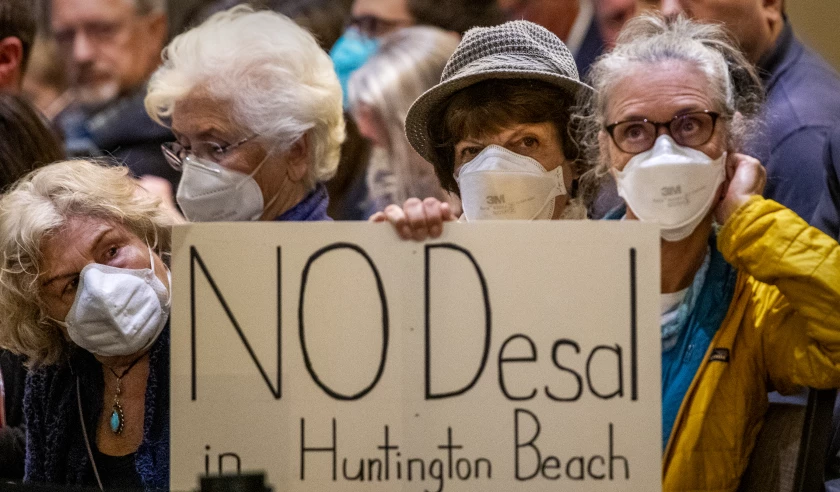An Environmental Win regarding the Poseidon Ocean Desalination Plant proposed for Huntington Beach

Header Photo: Audience members against the proposed Poseidon desalination project in Huntington Beach, listen to speakers at the California Coastal Commission hearing to consider whether they will approve a permit for the company Poseidon Water to build a large desalination plant in Huntington Beach.(Allen J. Schaben/Los Angeles Times)



Add new comment